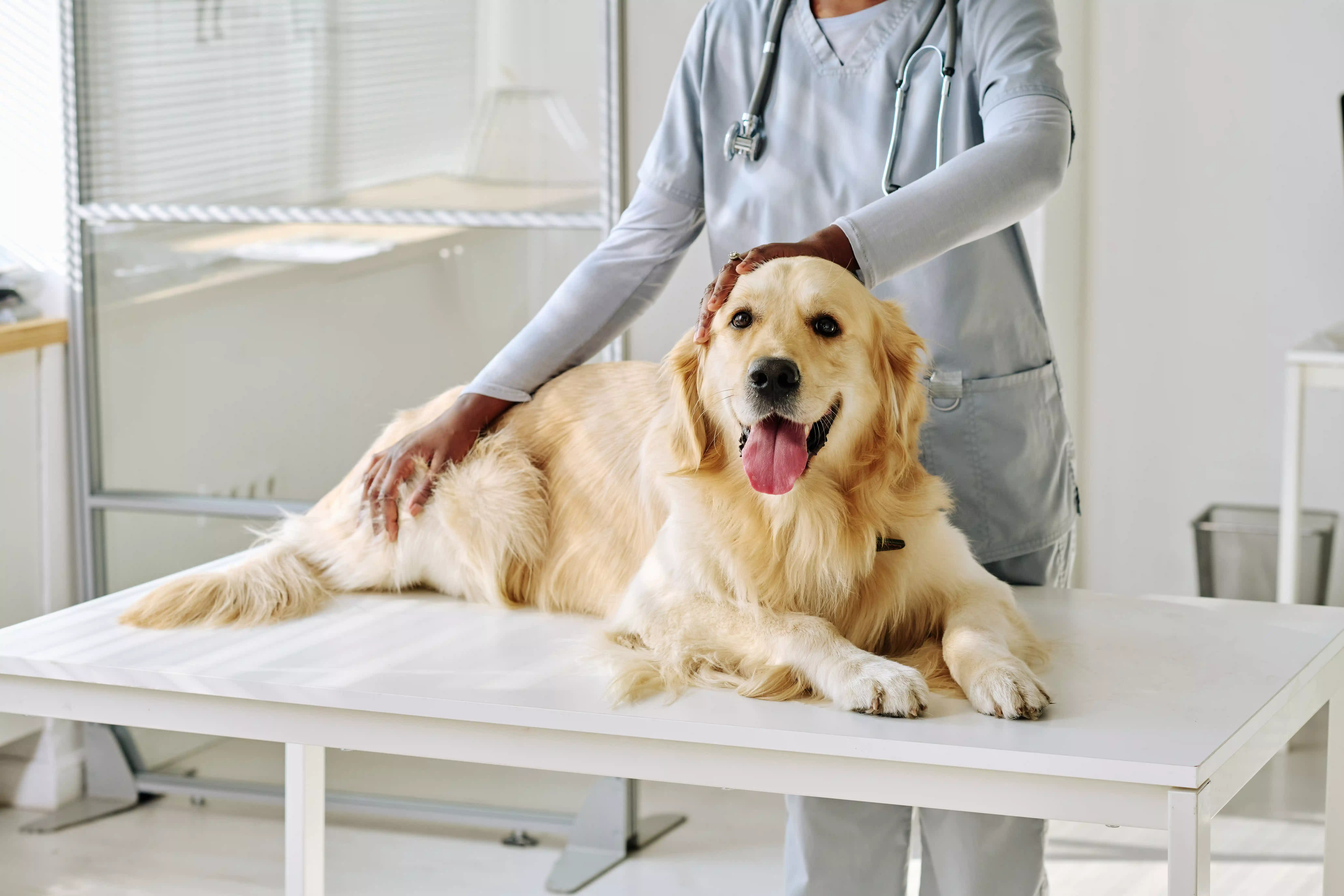Dogs are popular pets and have many types with different treatments. Here are some popular dog breeds and some general tips for caring for them:
1. Types of Dogs and How to Care for them
1.1 Golden Retrievers:
Dense fur, fall twice a year. Comb the fur regularly.
Active and needs daily exercise.
Provide quality food and enough drinking water.
Socialization and training is very important.
1.2 Labrador Retrievers:
Thick fur, shed twice a year.
Comb the fur regularly.
Active and intelligent, provide mental and physical stimulation. Tend to be fat, manage food properly and provide regular exercise.
1.3 Pomeranians:
Dense fur, comb the fur every day to avoid tangles.
Give interactive toys because they are smart and active.
Avoid overheating due to their thick fur.
1.4 Chihuahuas:
Small size, take care of their teeth regularly.
Pay attention to temperature, as they are sensitive to extreme weather.
Give them appropriate exercise.
1.5 Bulldogs:
Pay attention to their skin folds, make sure it is dry and clean.
Avoid strenuous physical activity because it tends to be difficult to breathe.
Provide food with controlled portions because it is prone to obesity.
1.6 Siberian Huskies:
Comb their fur regularly to reduce shedding.
Provide enough exercise and mental stimulation.
Keep them hydrated, especially in summer.
1.7 Beagles:
Train them in positive methods because they have a hunting instinct.
Provide sufficient physical activity to prevent excess weight.
Check the ears regularly to avoid ear infections.
1.8 Poodles:
Thick fur, cut or grooming regularly.
Train them because they are smart and love to learn.
Meet the need for exercise and mental stimulation.
Of course, dog grooming is not limited to the above list. Each breed of dog has specific needs, depending on size, age, health and activity level. Always make sure to provide quality food, regular health checks by the vet, proper vaccinations, and sufficient affection. As a good dog owner, always pay attention to and understand your pet's unique needs and don't hesitate to consult a veterinarian if you have any questions or concerns regarding their health and care.
Vaccination is one of the most important steps in keeping your dog healthy. Vaccination aims to protect dogs from infectious diseases that are dangerous and can be life threatening. When a dog is vaccinated, its immune system is taught to recognize and fight disease-causing agents, so that when the dog is exposed to the disease in the future, its body will have strong defenses against it. Here are some of the functions and types of vaccines that are commonly given to dogs:
2. Function of Vaccines in Dogs:
2.1 Preventing Infectious Diseases:
Vaccines help prevent the spread of infectious diseases between dogs. Some infectious diseases in dogs, such as rabies and parvovirus, can be fatal.
2.2 Creating Herd Immunity:
By widely vaccinating the dog population, what is called “herd immunity” is created. This means that when a large proportion of dogs in a given area are vaccinated, the chances of spreading the disease are lower.
2.3 Protecting Owners:
Some diseases that dogs can contract can also be transmitted to humans, such as rabies. Vaccinations in dogs also protect owners from the risk of contracting diseases from their pets.
3. Types of Vaccines in Dogs:
3.1 Rabies Vaccine:
Rabies vaccine is a mandatory vaccine for almost all dogs because rabies is a fatal disease and can be transmitted to humans. Dog rabies vaccine is usually started when the dog is around 12 weeks old and renewed every 1-3 years depending on local laws and the type of vaccine used.
3.2 DHP Vaccine (Distemper, Hepatitis, Parvovirus):
The DHP vaccine is a combination of three vaccines to protect dogs against distemper, infectious hepatitis and parvovirus. Distemper can cause respiratory, nervous system, and digestive system disorders; Infectious hepatitis affects the liver, and parvovirus causes severe intestinal infections. The DHP vaccine is given to dogs in several doses as puppies, and then renewed every 1-3 years.
3.3 Bordetella vaccine:
Also known as the whooping cough vaccine, this vaccine protects dogs against infectious respiratory diseases, especially when in places with large crowds of animals, such as animal care centres.
3.4 Leptospirosis Vaccine:
This vaccine protects dogs against Leptospira bacteria, which can cause kidney and liver disease. This vaccine is recommended for dogs living in areas with a high risk of Leptospira transmission.
It is important to note that the vaccination schedule and the type of vaccine given can vary based on factors such as age, medical history, environment and local regulations. Therefore, it is very important to consult an experienced veterinarian to plan the right vaccination schedule for your dog. Proper and regular vaccinations will help keep your dog healthy and prevent the spread of dangerous diseases.
Dog health is one of the most important aspects of caring for them as pets. Apart from giving them enough love and attention, making sure they get the right food and enough activity is also very crucial. In this article, we'll look at the foods and activities that can support your dog's optimal health.
4. Dog Health Support Food:
4.1 Choose Quality Food:
Be sure to provide a balanced, high-quality diet that meets the nutritional needs of the dog. Make it a habit to read food labels to ensure proper nutrition, including protein, fat, carbohydrates, vitamins, and minerals.
4.2 Pay Attention to Caloric Intake:
Different dogs require different amounts of calories depending on their age, size, activity level and state of health. Avoid overfeeding which can lead to obesity and related health problems.
4.3 Do Not Feed Human Food:
Some human foods can be harmful to dogs, including chocolate, grapes, onions and high-fat foods. In addition, chicken and fish bones can be a safety hazard for dogs as they can cause choking or injury.
4.4 Feed Age Appropriate Food:
Puppies need a different diet from adult or elderly dogs. Choose a food that is appropriate for your dog's life stage.
4.5 Adequate Drinking Water:
Make sure the dog has easy access and enough fresh drinking water at all times. Adequate drinking water is very important for the health of the kidneys and other organs.
5. Dog Health Support Activities:
5.1 Walking and Running:
Physical activity such as walking and running is very important for keeping a dog's fitness and heart healthy. This activity also helps eliminate excess energy in dogs, especially in active dog breeds such as the Siberian Husky or Labrador Retriever.
5.2 Play:
Social interaction and play with the owner and other dogs helps keep the mental and emotional aspects of the dog healthy and happy. Interactive toys can also provide mental stimulation which is important for avoiding boredom and behavioral problems.
5.3 Training:
Training activities can be both physical and mental exercise. Train your dog in positive methods to teach basic commands and desired behavior.
5.4 Water Sports:
Some breeds of dogs especially enjoy swimming, which is a fun, low-impact, full-body exercise. If your dog likes water, consider taking him swimming.
5.5 Smell Activity:
Dogs are very sensitive smelling animals. Give your dog time to sniff and explore the surroundings by taking easy walks or playing "sniffing games" in the park.
It's important to remember that every dog has different needs and activity levels. Tailor food and activities to your dog's specific characteristics and needs. In addition, consult your veterinarian for specific recommendations and guidance on the best diet and activities for your dog. By paying special attention to food and activity, you can help maintain the health and quality of life of your beloved dog.
Also Read: Temporary Treatment for Sick Pets
BFI Finance is a company that provides multi-purpose loans with guarantees for motorbike bpkb, car bpkb, and house or shophouse certificates







